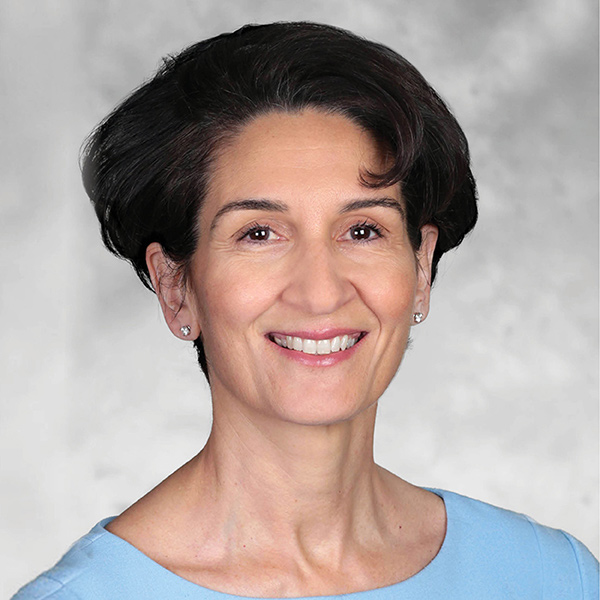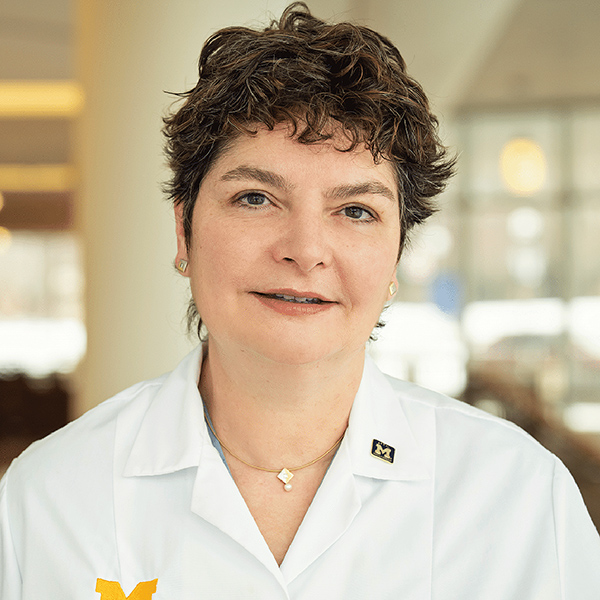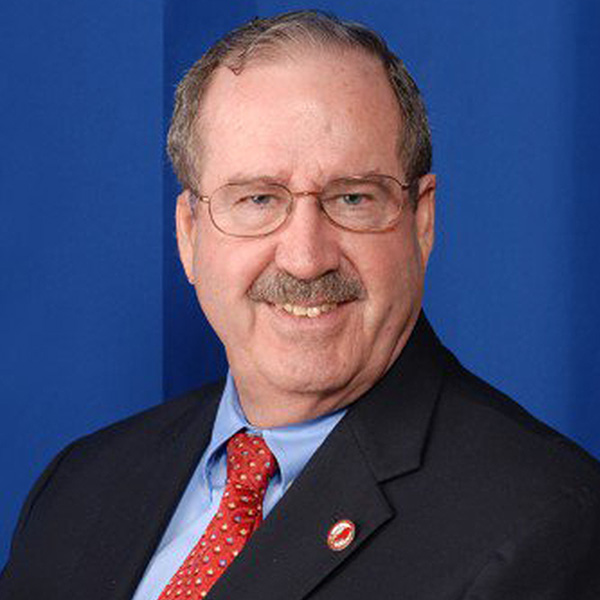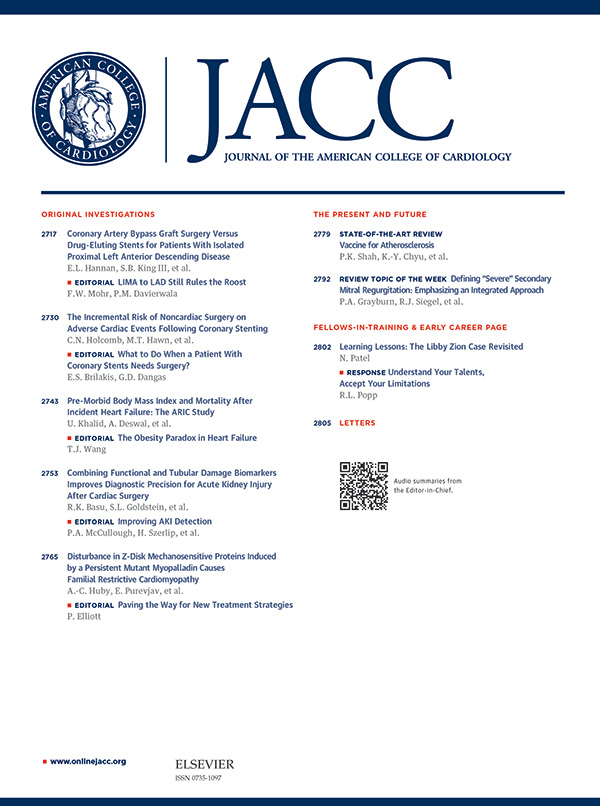Pulse of ACC | In Memoriam; BOT Approves Officers and Trustees; JACC Ranked Highest in Cardiology
JACC Ranked #1 in Cardiology; Remembering Joseph D. Babb, MD, FACC; and More.
ACC BOT Approves 2019 Slate of Officers and Trustees
The ACC Board of Trustees (BOT) has approved the College’s newest slate of officers and trustees, including its next president and vice president.
The ACC Nominating Committee, led by Immediate Past President Mary Norine Walsh, MD, MACC, put forth the following candidates for BOT approval, using the College’s Leadership Competencies as guidance: Richard J. Kovacs, MD, FACC, to serve as president from 2019-2020; Athena Poppas, MD, FACC, to serve as vice president from 2019-2020; Claire S. Duvernoy, MD, FACC, and James L. Januzzi Jr., MD, FACC, to serve as trustees from 2019-2022.
These candidates will assume their roles in March 2019 as part of ACC.19 in New Orleans, LA. “I’m excited by the diverse perspectives, experiences and backgrounds that each of these individuals will bring to the BOT and the College as a whole,” said Walsh.




In Memoriam: Joseph D. Babb, MD, FACC

Joseph D. Babb, MD, FACC, a pioneer in interventional cardiology and prominent Fellow of the American College of Cardiology (FACC), died recently at age 79.
Babb practiced at the East Carolina Heart Institute in Greenville, NC, and served as clinical professor of cardiology at East Carolina University Brody School of Medicine. He began practicing in 1966 after graduating from Johns Hopkins University School of Medicine. Before completing his interventional cardiology fellowship at Massachusetts General Hospital, Babb was a member of the U.S. Army Medical Corps, serving in Vietnam and at Walter Reed National Military Medical Center. Read More >>>
Babb was recognized in the cardiology community for performing the first coronary angioplasty at the Pennsylvania State University Hershey Medical Center, where he also served as an assistant professor of medicine and cardiologist. He also performed the first coronary angioplasty in Connecticut after being named chief of cardiology at Bridgeport Hospital.
Babb served as ACC Governor of North Carolina and was instrumental in the founding of the North Carolina Regional Approach to Cardiovascular Emergencies (RACE) project – a statewide system for providing rapid artery reperfusion for patients with STEMI.
He also served as president of the Society for Cardiovascular Angiography and Intervention (SCAI), from 2001-2002. In 2005, Babb received SCAI’s Distinguished Service Award. Earlier this year, Babb was named the Patient Preferred Interventional Cardiologist in North Carolina.
"Joe was a tremendous physician, educator, mentor and friend,” said ACC President C. Michael Valentine, MD, FACC. “As ACC Governor and SCAI President, he was a tireless advocate for his patients, quality care, and interventional cardiology. He will be sorely missed by all those he touched in a long, successful career."
“Eleanor Roosevelt was quoted that ‘when someone passes this life, it is not their accomplishments those left behind remember most, it is how they made you feel.’ Joe made one feel like they could accomplish anything if they tried, as he emitted the positive things life and work meant and how we were to use our gifts for our patients, colleagues and family,” said ACC Membership Committee Chair Chair B. Hadley Wilson, MD, FACC.
Updated Guidance For Treating ACHD Patients Released
The ACC and the American Heart Association have released an updated guideline for the management of adult congenital heart disease (ACHD) patients. The 2018 AHA/ACC Guideline for the Management of Adults With Congenital Heart Disease, published Aug. 16 in the Journal of the American College of Cardiology, replaces the original guideline published in 2008, and incorporates new data and growing ACHD expertise.
Specifically, the guideline presents a new classification system for ACHD patients that retains the traditional classification based on the structural complexity of the disease while taking into account the patient’s functional status and other factors, including the presence of cardiovascular and noncardiovascular problems. Read more on ACC.org.
Check out the College’s ACHD Guideline resources including the Guidelines Made Simple Tool, Key Points to Remember, Eagle’s Eye View Podcast, and a CardioSmart CHD Infographic for patients. Find all of these resources and more on the ACHD Guideline hub on ACC.org as well as the JACC ACHD Guideline hub.
Google Scholar Metrics Ranks JACC #1 in Cardiology

The Journal of the American College of Cardiology (JACC) ranks #1 among cardiology journals and #8 among health and medical science journals based on the 2018 Google Scholar Metrics released this month. JACC: Cardiovascular Interventions and JACC: Cardiovascular Imaging also received high rankings among cardiology journals – #6 and #12 respectively.
Google Scholar Metrics aim to provide authors with a streamlined way to quickly gauge the visibility and influence of recent articles in scholarly publications. Journals are ordered by their five-year h-index and h-median metrics, which allow users to see which articles in each publication were cited the most and by whom. The 2018 metrics are based on articles published from 2013-2017.
In addition, the metrics include citations from all articles indexed in Google Scholar as of July 2018.
“The h-index is the primary rank for scholarship and promotion in academic medicine for individual investigators, the h5-index is the comparable metric for journals,” said JACC Editor-in-Chief Valentin Fuster, MD, PhD, MACC. “JACC authors, reviewers and our editorial board should be proud of this highly significant ranking.”
Keywords: ACC Publications, Cardiology Magazine
< Back to Listings

